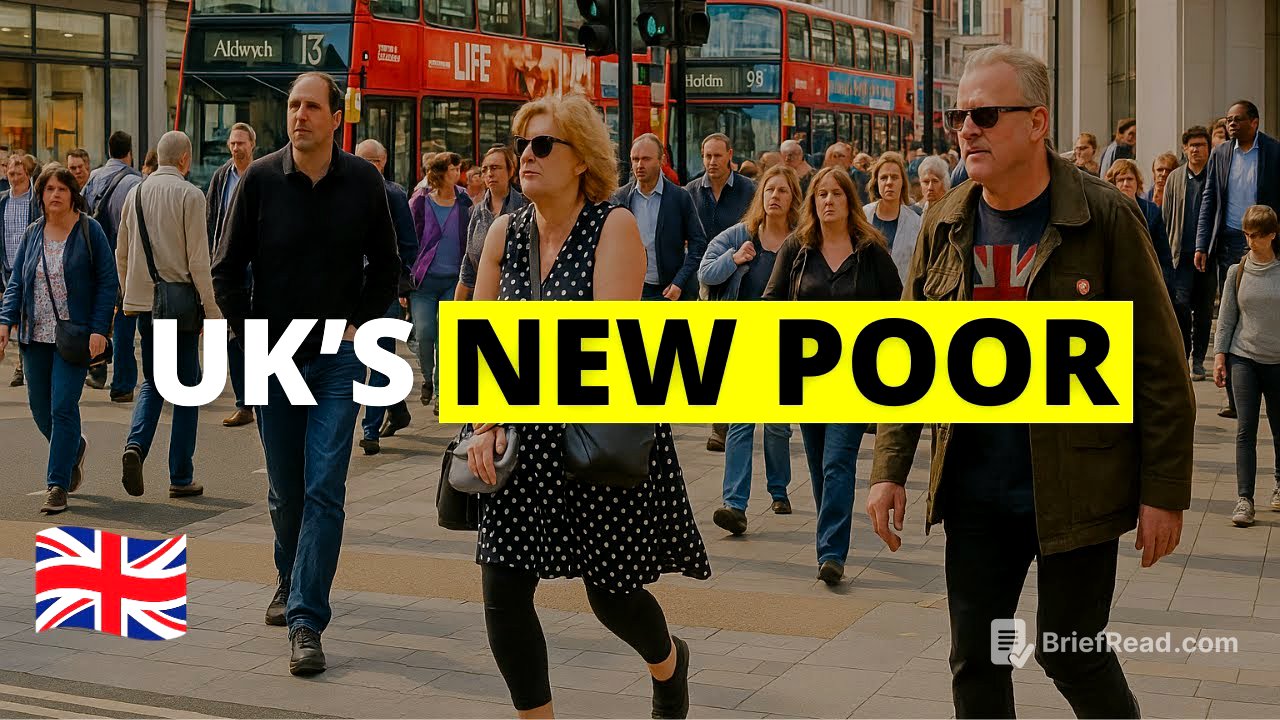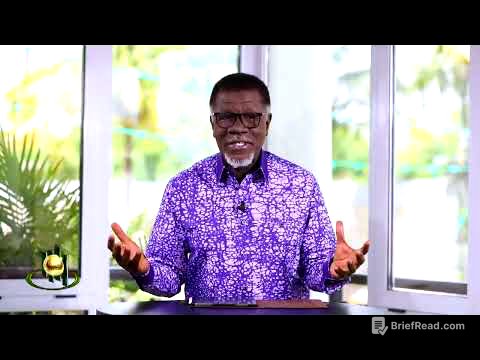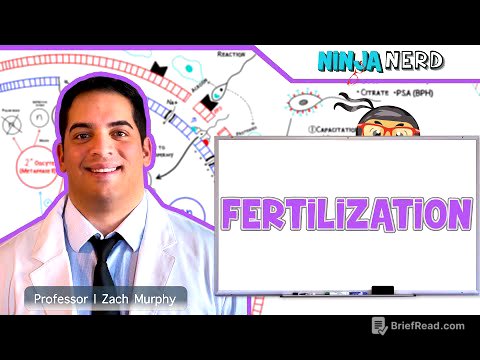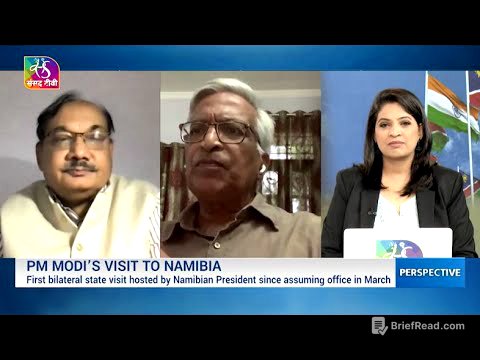TLDR;
The video discusses the evolving nature of poverty in the UK, highlighting that it's often invisible, affecting working individuals and families who struggle with the rising cost of living. It emphasizes the systemic issues contributing to in-work poverty, the impact on children, and the reliance on food banks as a new normal. The video also addresses fuel poverty, the economic costs of poverty, and debunks common myths, advocating for policy changes like living wages, affordable housing, universal childcare, benefits reform, and wealth taxation to address the root causes of inequality.
- Poverty in the UK is often invisible, affecting working individuals and families.
- Systemic issues like low wages and high living costs contribute to in-work poverty.
- Child poverty is a significant issue with lasting impacts.
- Food banks have become a permanent feature of life for millions.
- Fuel poverty affects a large number of households, leading to health issues.
- Poverty costs the UK economy billions annually.
- Policy changes like living wages, affordable housing, and benefits reform are needed.
Introduction: The New Face of Poverty in the UK [0:00]
The video introduces the concept of modern poverty in the UK, which is often hidden and affects individuals who have jobs, rent homes, and own smartphones but are still struggling financially. It challenges the traditional images of poverty and focuses on the silent struggles of those juggling bills, skipping meals, and constantly feeling behind. The video sets the stage to explore the realities of poverty in a rich country like the UK.
Defining Poverty in a Rich Country [0:30]
The video defines poverty in the UK as having an income below 60% of the median after housing costs, which translates to approximately £15,000 per year for a single adult or £27,000 for a couple with two children. It explains that even with these figures, the reality is that income is quickly consumed by rent, energy prices, transportation, food costs, and debt, leaving families with no savings or comfort. The Joseph Roundtree Foundation's 2024 report indicates that 14.4 million people in the UK, more than one in five, are living in poverty, with over half from working households.
The Paradox of In-Work Poverty [1:56]
The video highlights the paradox of in-work poverty, where individuals work full-time and still cannot afford a decent life due to wages not keeping pace with the cost of living. Despite the national living wage increasing to £11.44 an hour in April 2024, relentless price hikes in rent, food, transport, and childcare negate this increase. The average UK rent has risen to £1,280 per month, and over £2,000 in London, forcing minimum wage earners to work excessively just to afford housing. This situation has made in-work poverty a defining crisis in modern Britain, turning the idea of a job as a route out of poverty into a treadmill of overwork and desperation.
The Impact of Poverty on Children [3:35]
The video discusses the impact of poverty on children, noting that an estimated 4.2 million children in the UK were living in poverty in 2023, nearly one in three. In certain areas, this number is even higher, with over 40% of children growing up poor. These children often skip meals, rely on free school meals and food banks, lack warm clothing or a quiet place to study, and live in cold, damp, and overcrowded homes. Studies show that children in poverty are less likely to succeed academically, more likely to suffer from health issues, and more likely to remain poor as adults, creating a cycle of disadvantage.
Food Banks as Infrastructure [5:02]
The video addresses the alarming reality of food banks becoming a permanent feature of life in modern Britain. The Trussell Trust distributed nearly 3 million emergency food parcels in 2023-24, the highest number ever recorded in the UK, indicating a systemic failure on a national scale. Food banks are now an everyday lifeline for millions, including nurses, delivery drivers, retail workers, single parents, and even university lecturers. These individuals, despite having jobs and responsibilities, are forced to depend on charity to get through the week, highlighting the inadequacy of fair pay and affordable housing.
The Camouflage of Modern Poverty and the Burden of Debt [6:27]
The video describes how modern poverty is often camouflaged, existing in ordinary homes and masked by everyday activities like commuting and social media use. It highlights the hidden reality of debt, with the average UK household owing over £65,000, much of which is used for survival rather than luxury. Citizens Advice has reported a rise in people struggling with rent, council tax debt, and buy now pay later schemes. The video emphasizes the shame and silence surrounding poverty, as people try to maintain an illusion of normalcy while struggling in a system that grinds them down.
Geographical Disparities in Poverty [8:05]
The video examines the geographical disparities in poverty across the UK, noting that poverty rates are consistently higher in the Northeast, Wales, Northern Ireland, and parts of the Midlands. Even within major cities, there is a stark contrast between affluent suburbs and deprived neighborhoods. The reasons for this uneven distribution are rooted in de-industrialization, lack of infrastructure investment, poor transport links, and the rise of low-paid, insecure work. Universal Credit, intended as a safety net, often traps people deeper in poverty due to deductions, payment delays, and sanctions.
The Energy Crisis and Fuel Poverty [9:38]
The video discusses the UK's energy crisis and its impact on fuel poverty, where households cannot afford to heat their homes to a safe level. In 2023, an estimated 6.5 million households, more than one in four, were living in fuel poverty. Cold homes lead to respiratory illnesses, heart conditions, and mental health issues, resulting in thousands of cold-related deaths each winter. Despite government support, many households fell into arrears with energy providers, and prepayment meters became common in poorer communities, effectively rationing heat and electricity.
The Economic Costs of Poverty [11:07]
The video explains that poverty costs the UK economy an estimated £78 billion every year, spent on healthcare, housing benefits, social services, and lost productivity. This figure does not include the long-term costs related to education, social mobility, and the intergenerational impact of poverty. The video argues that the country spends more on managing poverty than it would cost to prevent it, suggesting that investments in early education, affordable housing, living wages, and stronger social safety nets would be more effective.
Busting Myths and Addressing Solutions [12:33]
The video debunks common myths about poverty, asserting that most people in poverty are not lazy or making bad choices but are working and contributing to society. It identifies the failing system, including a labor market with low-paid jobs, a rigged housing market, a flawed welfare system, and political inaction, as the primary cause. The video proposes solutions such as living wages, affordable housing through rent controls and increased affordable housing construction, universal free childcare, benefits reform with fewer delays and adequate funding, and wealth taxation to redistribute resources.
Rebalancing Priorities and Taking Action [15:30]
The video concludes by calling for a rebalancing of priorities to address poverty as a solvable problem rather than an inevitable part of life. It emphasizes that the UK has the resources but lacks the political will to tackle poverty effectively. The video urges viewers to share the video, challenge stereotypes, and support organizations fighting poverty on the ground, highlighting that poverty in the UK is a political choice that can be changed.






![[제40회 골든디스크] 아티스트 대상 - JENNIE (제니)](https://wm-img.halpindev.com/p-briefread_c-10_b-10/urlb/aHR0cDovL2ltZy55b3V0dWJlLmNvbS92aS9neTl5VlVQaF9GVS9ocWRlZmF1bHQuanBn.jpg)

